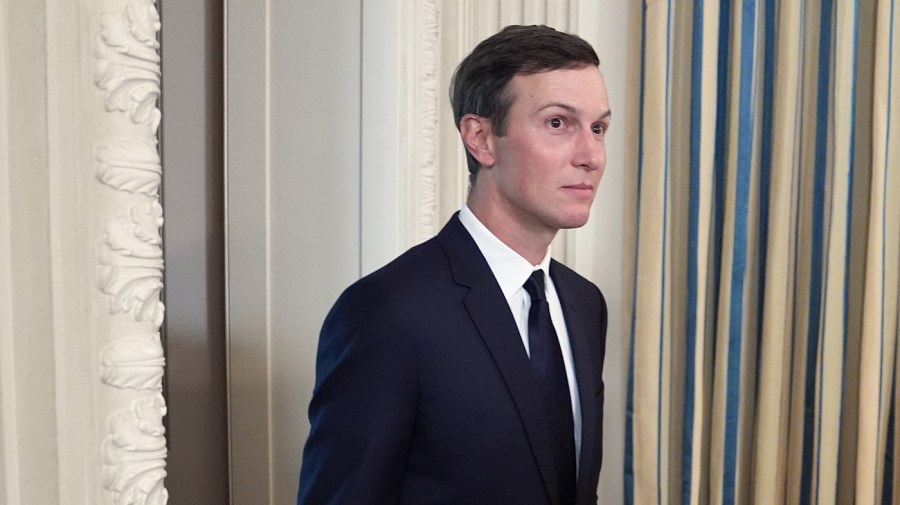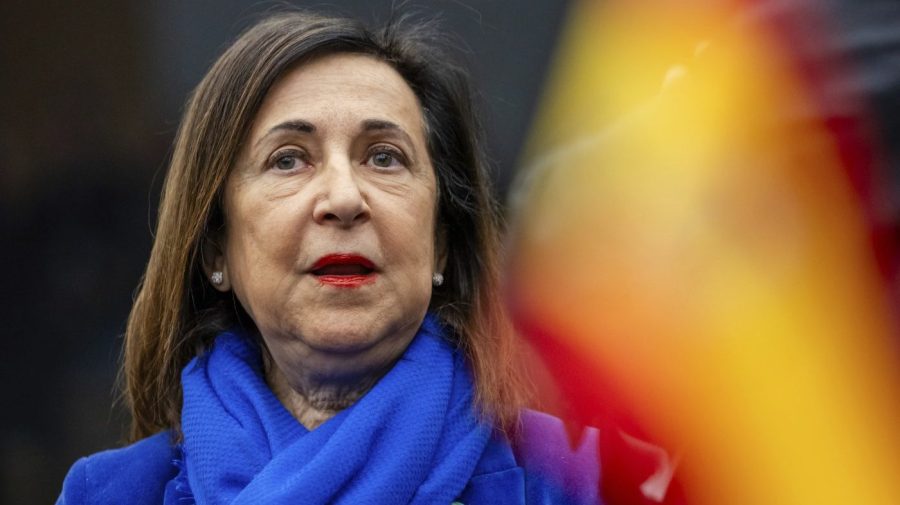Jared Kushner has reentered the political spotlight as a top envoy for the Trump White House in efforts to secure a peace deal in the Middle East, highlighting both his influence in the region and his growing business portfolio there.
Kushner, President Trump’s son-in-law who served as a senior White House adviser in Trump’s first term, has been on the sidelines of the second administration. But he has reemerged to take on a major role in one of Trump’s key foreign policy efforts.
“I put Jared there because he’s a very smart person and he knows the region, knows the people, knows a lot of the players,” Trump said during a Cabinet meeting Thursday.
Kushner took on a top role alongside special envoy Steve Witkoff in trying to finalize a peace agreement that would see Hamas release 20 living hostages taken during the Oct. 7, 2023, attacks in Israel, while Israeli forces would pause their offensive in Gaza.
Kushner has not had a formal role in the second Trump administration, but has remained an informal adviser, with Witkoff keeping him in the loop on Middle East efforts, two U.S. officials told reporters in a call Thursday evening. Kushner’s involvement ramped up in the past week as a deal got closer, they said.
Kushner and Witkoff were the chief architects behind Trump’s 20-point peace plan for ending the war, the officials added.
The two men were then dispatched to Egypt to help finalize the deal, which Trump announced on Truth Social on Wednesday evening. Both Kushner and Witkoff have met with leaders from Egypt and Israel since Trump publicly announced the agreement.
“They’re an incredible team working together, facing some substantial impediments to even being there,” national security adviser and Secretary of State Marco Rubio said during the meeting Thursday.
While serving as an informal adviser to the White House this year, Kushner has only deepened business ventures with Qatar, the United Arab Emirates and Saudi Arabia.
The White House has scoffed at questions about potential conflicts of interest caused by those business interests. Press secretary Karoline Leavitt last week called it “despicable” after a reporter asked whether Kushner’s involvement was appropriate given his business ties.
“Jared is donating his energy and his time to our government, to the president of the United States, to secure world peace. And that is a very noble thing,” Leavitt said, praising Kushner’s relationships in the region.
Kushner forged relationships with those key Gulf partners during Trump’s first term when he served as a senior adviser on the Middle East.
He was the driving force behind Trump’s first-term peace plan to end the Israeli-Palestinian conflict with the ultimate goal to establish ties between Israel and Saudi Arabia. He produced a 181-page plan called “Prosperity to Peace” in January 2020 that focused on economic incentives for Palestinians to motivate political solutions.
That plan was shelved, but the Trump administration succeeded in parlaying that into a separate diplomatic win, creating the Abraham Accords in August 2020. In an effort to halt Israeli plans to annex parts of the West Bank — that would have inflamed the region — the U.S. convinced Israeli Prime Minister Benjamin Netanyahu to relent in exchange for the United Arab Emirates and Bahrain establishing official diplomatic ties.
The Abraham Accords is arguably Trump’s most enduring diplomatic successes, and he has criticized the Nobel Peace Prize committee for not awarding him for his role in the agreements.
Kushner’s connection with Gulf countries in the subsequent years proved immensely lucrative. He founded and is the sole owner of the venture capital firm Affinity Partners, and has reportedly secured $2 billion in funding from Saudi Arabia, and garnered $1.2 billion in investments from Qatar’s sovereign wealth fund and the Abu Dhabi-based Lunate.
Late last month, Kushner teamed up with Saudi Arabia’s Public Investment Fund to purchase video game developer Electronic Arts in a $55 billion deal, which also included investment from American private equity firm Silver Lake.
Kushner’s deepening ties in the Gulf came alongside Trump elevating those relationships in his second term. The president made his first major overseas trip to Saudi Arabia, Qatar and the U.A.E. in May.
Trump has never stopped talking about expanding the Abraham Accords but acknowledged Saudi Arabia’s red line is that Israel’s war in Gaza must cease. Riyadh also needs to see a credible pathway to a Palestinian state.
Kushner reemerged most publicly in late August, alongside former British Prime Minister Tony Blair, for an internal White House discussion on a plan to reconstruct the Gaza Strip after the conclusion of Israel’s war in the territory.
“When he and Tony Blair went to see the president, that was reflecting, I think, what was a fair amount of behind-the-scenes work that had gone into developing this plan,” Dennis Ross, veteran Middle East negotiator, counselor and distinguished fellow at The Washington Institute for Near East Policy, said during a panel discussion Thursday.
The plan took on new urgency after Israel targeted Hamas officials in Doha in September, with Arab and Gulf countries brought into discussions for bullet points they could support on ending the war and leading to a Palestinian state.
“I have little doubt that he was a major force in terms of moving to get this into a higher level of focus for the president,” Ross said of Kushner, adding that he has spoken with him a few times over the course of Trump’s second term in office.
“Obviously, Steve Witkoff saw Jared as being a major help, a major asset, and his involvement seemed to be timed with much more of a high-level effort to get it done.”
Ghaith al-Omari, a senior fellow with the Washington Institute who served as a Palestinian negotiator in talks between 1999 and 2001, raised some concern over the outside-government approach to a deal.
“First of all, for me, this is a sign, frankly, that this is the kind of staff work that usually is done within the administration. It shows us some of the kind of challenges moving forward in terms of the work that usually is done in government now as being from the outside government,” he said.
“That said, I want to emphasize how strong the relations that Kushner and Blair have in the region, and the more I see them involved, the more I have a sense that the region is on board with this, at least at the leadership level.”
Kushner told The New York Times that it was his expertise outside of government that made him effective in hammering out an agreement, as both he and Witkoff were New York real estate developers before Trump’s political rise.
“The experience that Steve and I have as deal guys is that you have to understand people… You have to be able to kind of get the bottom line out of them, and then see who do you think is playing games, and how much room do you have to push things?” he told the Times.
“A lot of the people who do this are history professors, because they have a lot of experience, or diplomats. It’s just different being deal guys — just a different sport.”
The senior U.S. official told The Hill that Kushner was likely to return to his previous role as an “available adviser” once the first phase of the peace agreement was completed.














